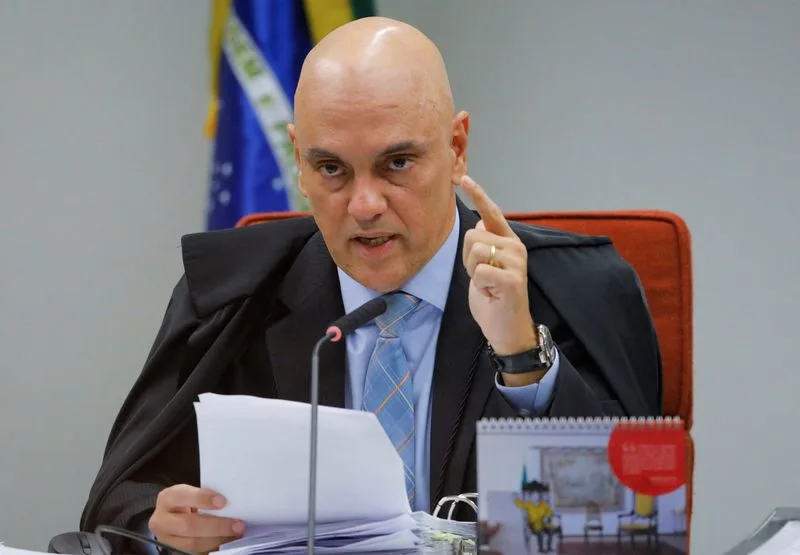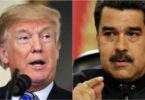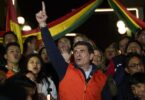(Reuters): The U.S. on Wednesday imposed sanctions on a Brazilian Supreme Court justice overseeing the trial of former President Jair Bolsonaro, accusing the judge of authorizing arbitrary pre-trial detentions and suppressing freedom of expression.
Justice Alexandre de Moraes has presided over the criminal case against Bolsonaro, who has been charged with plotting a coup to overturn Brazil’s 2022 presidential election.
Also on Wednesday, U.S. President Donald Trump signed an executive order imposing a 50% tariff on Brazilian goods, which he has said was meant to stop the “witch hunt” against his right-wing ally Bolsonaro.
Moraes was sanctioned under the Global Magnitsky Act, which allows the U.S. to impose economic penalties against foreigners it considers to have a record of corruption or human rights abuses. Secretary of State Marco Rubio told lawmakers in June that Washington was considering sanctions against the judge.
“Alexandre de Moraes has taken it upon himself to be judge and jury in an unlawful witch hunt against U.S. and Brazilian citizens and companies,” U.S. Treasury Secretary Scott Bessent said in a statement.
Moraes, he said, “is responsible for an oppressive campaign of censorship, arbitrary detentions that violate human rights, and politicized prosecutions — including against former President Jair Bolsonaro.”
Also on Wednesday, U.S. President Donald Trump signed an executive order imposing a 50% tariff on Brazilian goods, which he has said was meant to stop the “witch hunt” against his right-wing ally Bolsonaro.
Moraes was sanctioned under the Global Magnitsky Act, which allows the U.S. to impose economic penalties against foreigners it considers to have a record of corruption or human rights abuses. Secretary of State Marco Rubio told lawmakers in June that Washington was considering sanctions against the judge.
“Alexandre de Moraes has taken it upon himself to be judge and jury in an unlawful witch hunt against U.S. and Brazilian citizens and companies,” U.S. Treasury Secretary Scott Bessent said in a statement.
Moraes, he said, “is responsible for an oppressive campaign of censorship, arbitrary detentions that violate human rights, and politicized prosecutions — including against former President Jair Bolsonaro.”
Brazilian Supreme Court Justice Flavio Dino extended his “personal solidarity” to Moraes via social media, saying his colleague “was only doing his job in an honest and dedicated way, following the Brazilian constitution.” He noted that the wider court had upheld his decisions on review.
Washington stepped up pressure on Brazil’s top court after the latest restrictions against Bolsonaro, imposing U.S. visa restrictions on Moraes, his family and other unnamed court officials.
Brazilian President Luiz Inacio Lula da Silva denounced those July 18 measures as “arbitrary” and “baseless,” and said foreign interference in the judiciary was “unacceptable.” The leftist leader said in a statement that the U.S. action violated fundamental principles of sovereignty and mutual respect.
A member of Lula’s cabinet, Gleisi Hoffmann, called the added sanctions against Moraes “a violent and arrogant act” in a social media post on Wednesday, which expressed the government’s “total repudiation of the latest absurdity.”
Ivar Hartmann, a law professor at São Paulo business school Insper, said the sanctions against Moraes could lead the Supreme Court to stiffen its resolve to show “we will not bend to them.”
The sanctions could also serve as justification in Washington if Trump needs to review the tariffs on Brazil, he said.
Welber Barral, a former Brazilian trade secretary, said it was hard to tell if the Magnitsky sanctions, designed to address human rights violations, would have any bearing on Trump’s use of tariffs, which are typically a response to trade deficits.
Brazil is one of the few major economies with which the U.S. runs a trade surplus.







